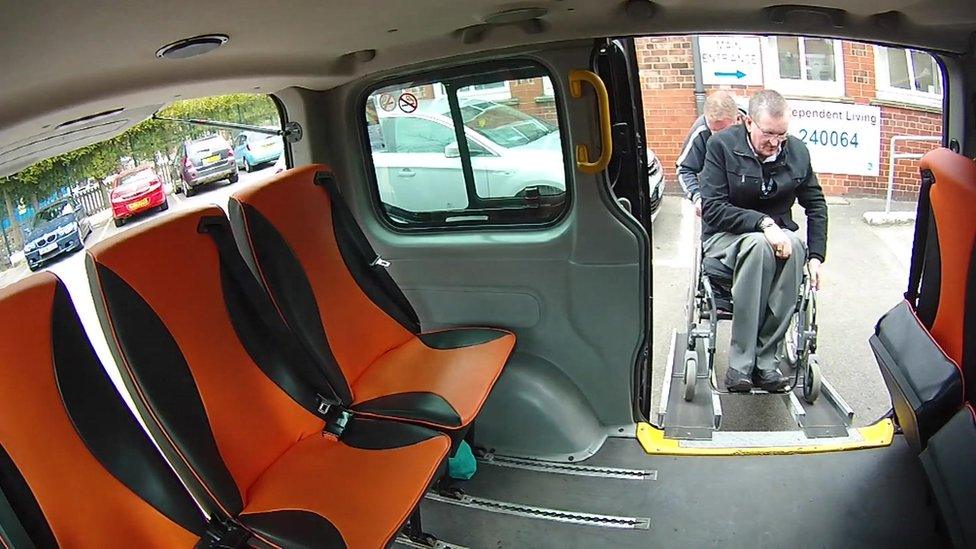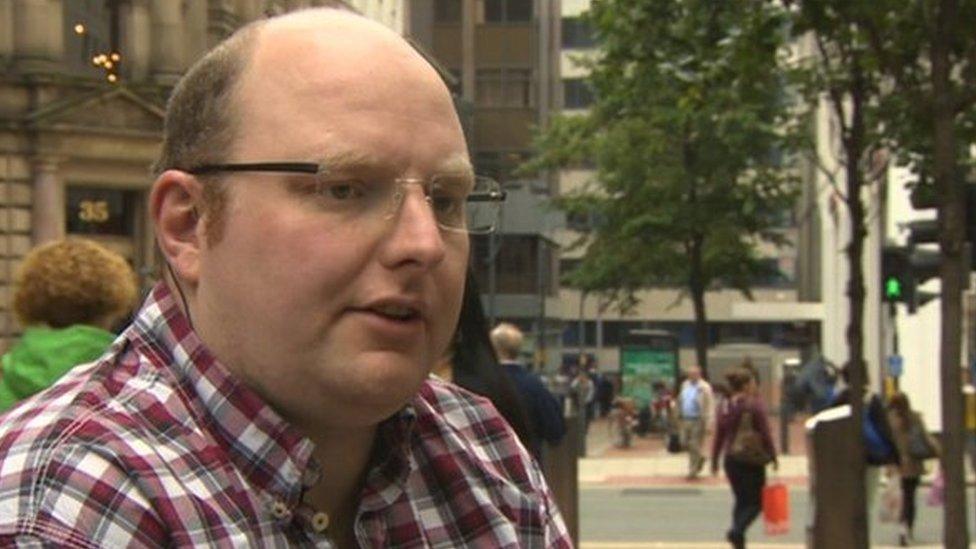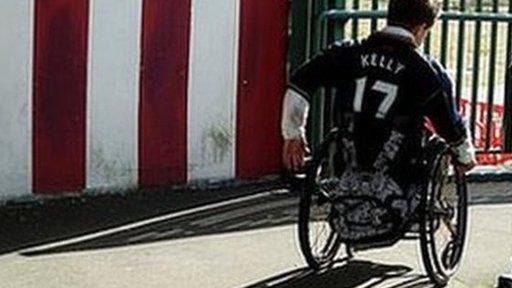Disabled people 'treated like second-class citizens' - watchdog
- Published
Artist Julie and her dog Precious face daily transport challenges as Nikki Fox reports
People with disabilities are being treated like second class citizens, the UK's equality watchdog has said.
Equality and Human Rights Commission chairman David Isaac has called for stronger legislation and more focus on improving disabled access.
It follows a House of Lords report in March which said disabled people were an "afterthought" for the government.
The government said it was supporting people with disabilities into work and improving access.
But Mr Isaac said progress on disability rights had stalled, branding it a "badge of shame" on society.
Thousands of disabled people were still not being treated as equal citizens, he said.
"The everyday rights non-disabled people take for granted, such as being able to access transport, housing, restaurants, theatres and sporting events, are still being denied."
'Taxis drive away'
Selina Mills, a writer with a visual impairment, told the BBC of her experience of trying to get a black cab in London - all of which should be accessible to disabled people by law.
"You can quote the Equality Act 2010 all you like, but people can still drive away, there's no way of enforcing it," she said.
"It's very frustrating, you can campaign, argue all you, you can get upset but actually all you really want is to do is get to work."
As a wheelchair user how would you get in?
The commission has called for a "new national focus on disability rights", and for the Equality Act to be strengthened to improve access to transport, housing and representation in politics for disabled people.
"Successive governments have failed to implement rights for disabled people in full, and now is the time to move this forward," Mr Isaac said.
Businesses also had a large part to play in improving accessibility, he added.
The government said it was "determined to ensure disabled people live free from discrimination", and was investing more than £115m to support disabled people into work and improve accessibility to public services.
"But we know there is more to be done, which is why we're committed to halving the disability employment gap as well as continuing to work with disabled people and wider society to understand how we can achieve true equality," a spokesman said.
- Published24 March 2016

- Published15 June 2016

- Attribution
- Published14 September 2015
